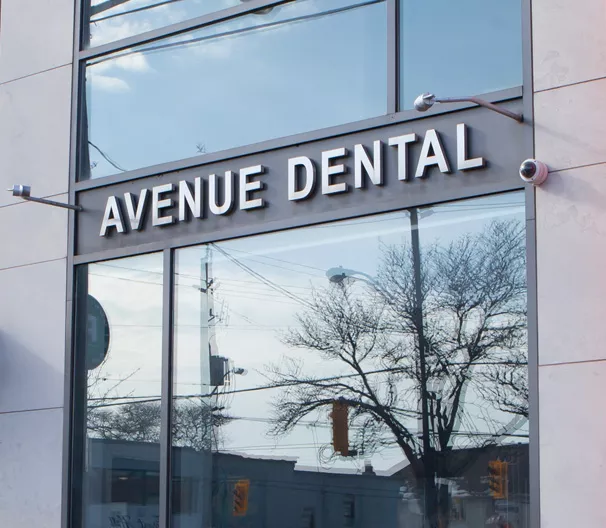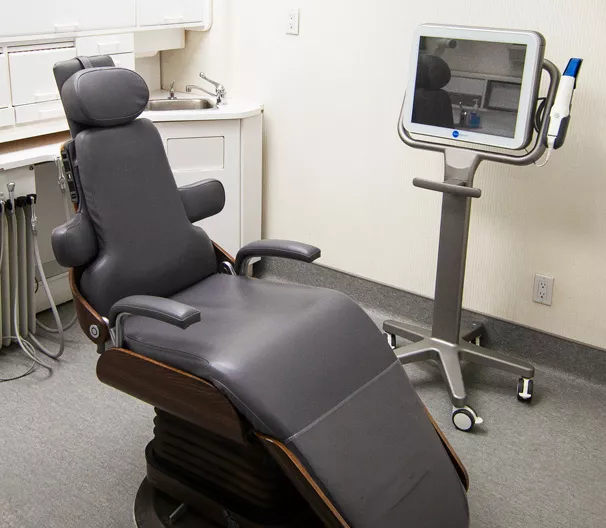TMJ Disorder Treatment in Toronto
TMJ disorder can cause chronic jaw pain and headaches, facial pain, difficulty swallowing and other symptoms. We offer diagnosis and treatment to bring you relief.
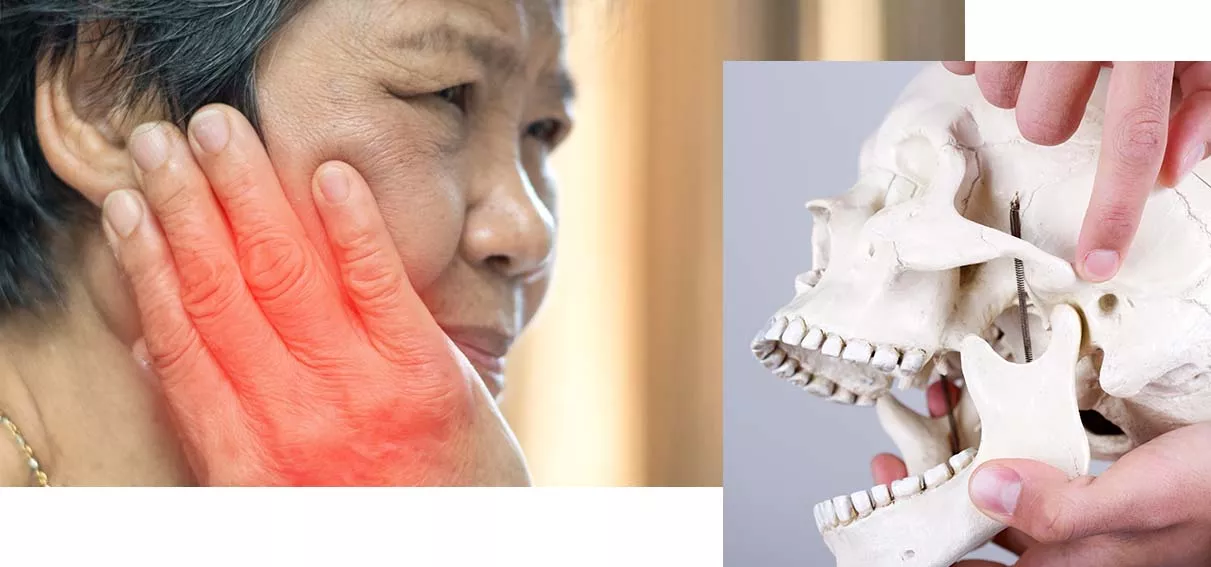
What is TMJ Disorder?
TMJ disorder is the name for the group of conditions that can cause inflammation and pain in the joint between your lower jaw and your skull. Symptoms can include chronic pain, headaches, difficulty opening your mouth or swallowing, and a clicking or popping feeling when you are chewing.
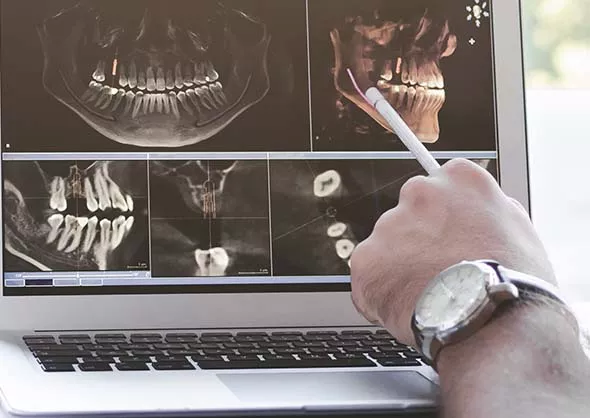
TMJ Diagnosis
TMJ disorder can have a number of causes, including stress, genetics, injury to the jaw, and arthritis. Diagnosis focuses on identifying the root cause of the disorder and can include an examination of your teeth and jaw structure, discussion of your overall health and stress level, and whether you suffer from conditions such as teeth grinding, malocclusion, or arthritis.
TMJ Treatment
Once the root cause is found, we will recommend the appropriate treatment to relieve symptoms. TMJ treatments may include anti-inflammatory or other medication, physical therapy, stretching or massage, orthodontic treatment of bite issues or grinding, or stress reduction. We may also treat any chronic underlying health conditions that may be causing the TMJ disorder symptoms.
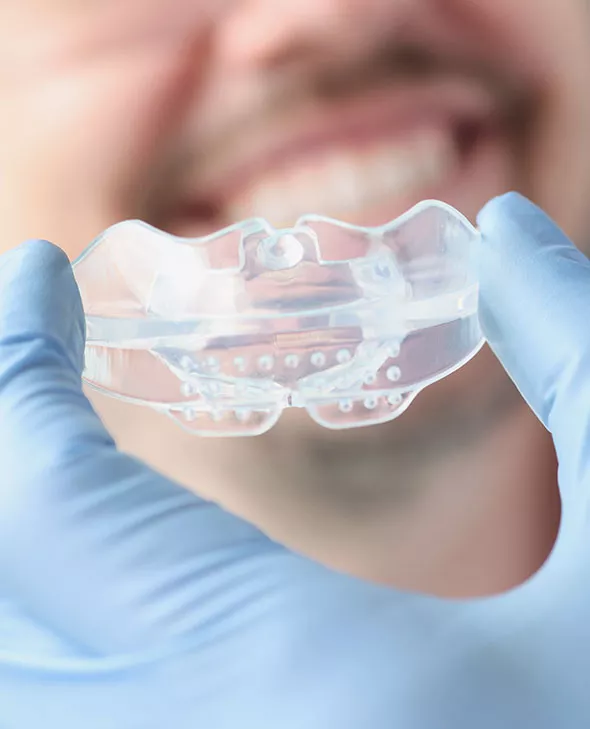
Frequently Asked Questions
Am I at risk of developing TMJ disorder?
You may be at risk if you clench your teeth, have arthritis, or have a history of jaw injury. TMJ problems often develop when stress, misaligned teeth, or even habits like chewing gum put extra strain on your jaw joint. At our Toronto dental office, we can examine your teeth and jaw to see if you’re showing signs of TMJ disorder and help you understand your personal risk.
What can I do at home to manage TMJ disorder symptoms?
Simple at-home care can often bring relief from TMJ pain. You may find comfort by gently massaging your jaw muscles, applying a warm or cold compress, or practicing relaxation techniques that reduce tension. It also helps to avoid hard, chewy, or sticky foods that put added pressure on your jaw. If symptoms continue, our Toronto dentists can provide treatment options tailored to your needs.
Why does my jaw pop or click?
Jaw popping or clicking is often caused by stress or imbalance in your temporomandibular joint (TMJ). This small but important joint controls how your jaw moves, and when it’s strained, you may hear clicks or feel discomfort when opening or closing your mouth. Stress, teeth grinding, or jaw misalignment are common triggers. Our Toronto dental team can examine your jaw to identify the cause and recommend gentle, effective ways to relieve your symptoms.
Who do I see for TMJ treatment?
You should see a dentist who has experience treating TMJ disorders.Dentists understand how your teeth, bite, and jaw work together, which makes them the best first step when you’re dealing with jaw pain, stiffness, or headaches linked to TMJ issues. At our Toronto practice, we’ll assess your symptoms and guide you toward the most effective treatment plan for your unique needs.
How can a dentist help TMJ problems?
A dentist can help relieve TMJ pain by addressing the causes of strain on your jaw joint. Our team can recommend treatments such as custom night guards to reduce teeth grinding, bite adjustments to ease pressure, or relaxation techniques to support healing. We focus on practical solutions that reduce pain, improve jaw function, and help you feel more comfortable every day.
Can a dentist help align my jaw?
Yes, dentists can often help improve jaw alignment when TMJ problems are involved. Sometimes misaligned teeth or an uneven bite can put stress on your jaw joint, leading to discomfort. Our dentists in Toronto carefully assess how your teeth come together and may recommend treatments such as bite adjustments, orthodontics, or appliances that encourage proper alignment. The goal is to restore balance, comfort, and healthy jaw function.
How can a dentist help TMJ problems?
A dentist can help relieve TMJ pain by addressing the causes of strain on your jaw joint. Our team can recommend treatments such as custom night guards to reduce teeth grinding, bite adjustments to ease pressure, or relaxation techniques to support healing. We focus on practical solutions that reduce pain, improve jaw function, and help you feel more comfortable every day.

